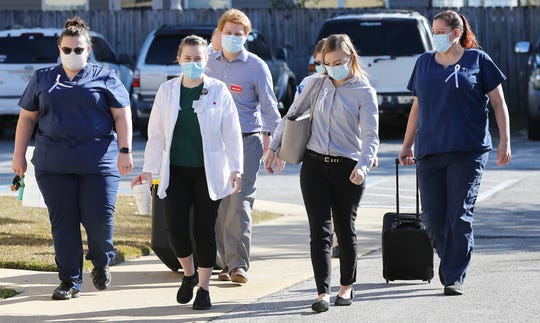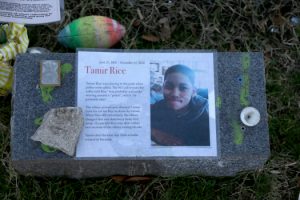Vice President-elect Kamala Harris received her COVID-19 vaccine along with her husband, Doug Emhoff. USA TODAY
A long-delayed education campaign aimed at encouraging Americans to take the coronavirus vaccine will launch in January, federal health officials said Tuesday.
An earlier effort ran into trouble over concerns it was part of a $265 million celebrity-studded campaign to “defeat despair” surrounding COVID-19 in advance of the presidential election.
A review of the campaign was conducted, and the Department of Health and Human Services was cleared to proceed on Nov. 13, a senior agency public affairs official said in a background briefing with reporters.
The new, science-based campaign will include TV, radio and print ads that officials say will emphasize the power of the vaccine to stop the spread of the virus and help communities.
The public information campaign lags behind the nation’s vaccination effort, which began on Dec. 14 with front line health care workers. But managing expectations is a crucial part of guiding the program, officials said.
“At this point in time we really are being cautious about not creating demand when the product is not available to the mass of the public,” said the HHS official, who spoke to reporters under the condition their name and title not be used.
Beginning the media campaign in January makes sense, said Glen Nowak, director of the University of Georgia’s Center for Health and Risk Communications and a former communication director for the CDC’s National Immunization Program.
“You have to match up your message with people’s ability to actually get what you’re promoting,” he said. “If you tell people to do something and they can’t, that’s going to lead to frustration.”
The HHS officials said it was better to wait and provide general education now and a push later.
There was only so much that could be done before it was known which vaccines were going to be approved and what their characteristics were, Nowak added.
“You can do some things. Talking to and finding the key influencers for groups who are going to be hesitant about vaccines and establishing those relations as early as possible is good. But it would have been hard to do much more than that,” he said.
The campaign is being organized by HHS with help from multiple agencies. They are also working with public relations firms that are minority-owned and have long relationships with Black, Hispanic and Native American communities.
The campaign plans to include local spokespeople and members of local communities of color to get the word out. Google also may be involved in health messaging. The goal is to provide information so people can make up their own minds, HHS officials said.
Despite a slower-than-expected pace, vaccine should become more widely available to people over 65 and in high-risk groups in the coming weeks and months. It’s already being distributed to people 65 and older in Florida after a decision by Gov. Ron DeSantis to bump seniors to the front of the line.
The message the public hears will change over time as more vaccine becomes available. Ads in January will be different from those in June to remain relevant as the virus and vaccine situation evolves.



















